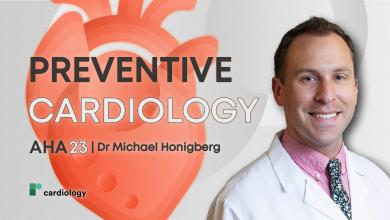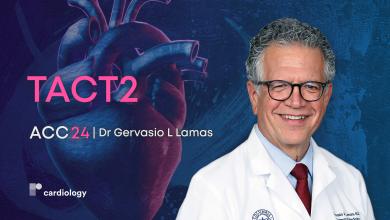In This Section:
Diabetes
CV Outcomes in Diabetes
Risk reduction with antihyperglycaemic therapies
Cardiovascular (CV) disease remains the leading cause of morbidity and mortality in patients with type 2 diabetes (T2D).
The opportunity for CV disease prevention in patients with T2D has recently expanded with antihyperglycaemic agents demonstrating significant reductions in the risk of major adverse cardiovascular events (MACE). Although the exact mechanisms of CV benefit remain uncertain, they appear to be unrelated to the direct glucose-lowering effects. These agents have triggered a shift beyond glucose control, to a broader strategy of comprehensive CV risk reduction.
CV specialists are well-positioned to play a key role in managing patients with T2D, including screening, aggressively treating CV risk factors, and incorporating the use of antihyperglycaemic agents into routine practice.

Section Advisor
Professor Mikhail N Kosiborod
Saint Luke's America Heart Institute, Kansas City, MO, US
Video
Video Series
Stefan Anker, Giuseppe Rosano, Javier de Juan Bagudá, et al
Video Series
Fausto J Pinto, Kerri L Cavanaugh, John Spertus, et al
Video
Harriette Van Spall, Neha Pagidipati, Christopher B Granger, et al
Video Series
Tina Vilsbøll, Neha Pagidipati, John Buse, et al
Broadcast
e-SPACE CRM 2023 – Day TwoStefan Anker, Javed Butler, Antonio Ceriello, et al
Broadcast
e-SPACE CRM 2023 – Day OneStefan Anker, Javed Butler, Antonio Ceriello, et al
Broadcast
Ahmet Fuat, Gary Ford, Kausik Ray, et al
Video
Aruna D Pradhan, Gurleen Kaur,
Video Series
Nina Barnett, Yassir Javaid, Paresh Parmar, et al
Recent Videos
Video
Nicolas M Van Mieghem, Joost Daemen,
Video
Harriette Van Spall, James L Januzzi,
Video
Nicolas M Van Mieghem, Joost Daemen,
Broadcast
e-SPACE CRM 2024 - Day 2Antonio Ceriello, Adeera Levin, Ileana L Piña, et al
Radcliffe Content
European Cardiology Review 2023;18:e19.
Journal of Asian Pacific Society of Cardiology 2022;1:e16.


































